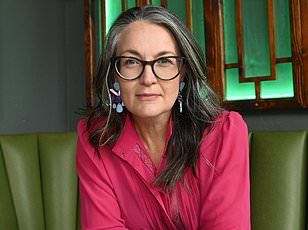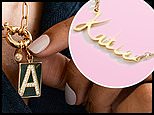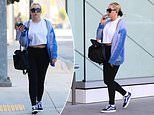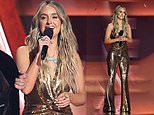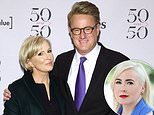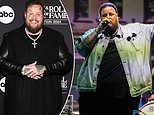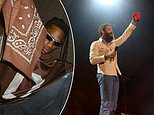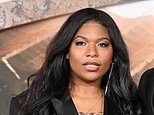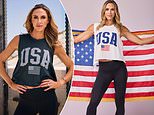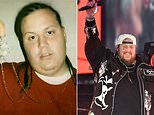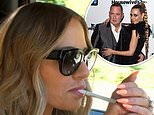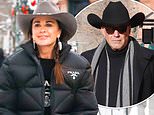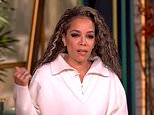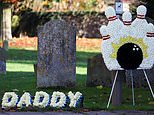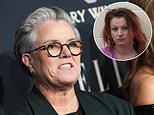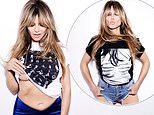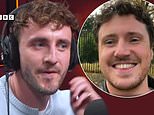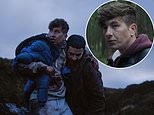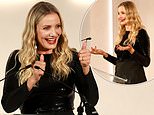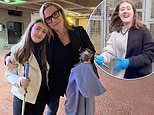Albo's full social media 'age verification' ban list is exposed: TikTok and Snapchat are in the PM's sights - but there are some exceptions
- Banned app list for children is announced
- Laws look set to speed through Parliament
- READ MORE: Child psychologist weighs in on social media ban
Tiktok, Snapchat and Reddit are among the social media platforms that will have to ban children under the age of 16 if Prime Minister Anthony Albanese's new rules pass Parliament.
But kids will be allowed to use WhatsApp and YouTube, according to a list detailed by Communications Minister Michelle Rowland on Thursday.
Ms Rowland has introduced world-first legislation to Federal Parliament that she claims would make the online environment safer for young people.
Tiktok, Facebook, Snapchat, Reddit, Instagram, and X formerly Twitter are among the platforms that will have to impose age limitations on users.
However, Messenger Kids, WhatsApp, Kids Helpline, Google Classroom, and YouTube are expected to be classified as 'out-of-scope services.'
The inclusion of messaging apps in the ban could have wider consequences by making communication within families harder, Ms Rowland said.
Companies that breach the minimum age obligation will face fines of up to $AUD49.5 million.
'The bill ... does not provide the magic pill to resolve or eliminate every harm children face online, nor does it seek to rule out digital participation and inclusion for young people,' Ms Rowland said.
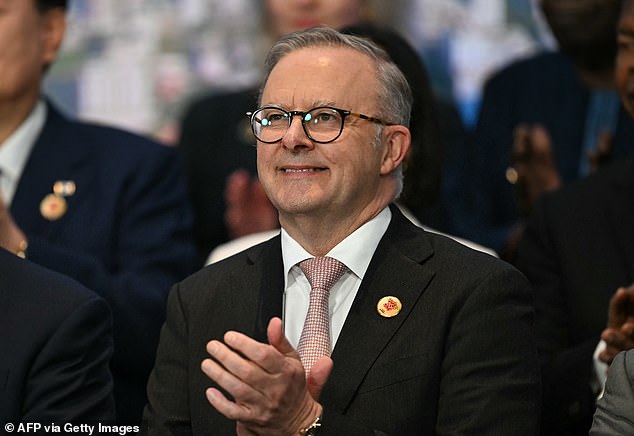
Prime Minister Anthony Albanese is pushing for the under 16s social media ban - and boasts the support of Peter Dutton's Coalition and some state premiers
'This is about protecting young people, not punishing or isolating them, and letting parents know we're in their corner when it comes to supporting their children's health and wellbeing.'
Under the draft laws, social media platforms would be required to take reasonable steps to prevent young people under 16 from having accounts.
There will be a minimum lead-in period of 12 months before the ban is activated.
Parents will not be able to give consent for their children to use social media, and users will not be required to hand over sensitive ID documents to platforms.
The measures will also allow the minister to exclude some services from the ban, including messaging services, online games, and health and education platforms.
Australia would be the first country to have an age ban on social media.
Age verification trials are underway to determine how the ban would be enforced.
Opposition Leader Peter Dutton has signalled his support for the new laws - meaning they are almost certain to pass the Parliament.
In a statement, Mr Dutton said: 'Parents are rightfully concerned about social media's impact on kids' mental health and development. That's why the Coalition backs age limits and privacy-protecting age verification.
'These protections for kids shouldn't be confused with Labor's harmful misinformation Bill, which threatens free speech. They are entirely separate issues.'
The laws also have the in-principle backing of NSW Premier Chris Minns and Victorian Premier Jacinta Allan.
But there has been heavy criticism online - particularly over how the laws will even work.
Former Labor senator turned independent Fatima Payman said: 'It will mean every Aussie having to use ID to verify their age or biometrics like face scanning.
'Get ready for a new household phrase "Mum, can I scan your face!?”'
The Australian Human Rights Commission said while the ban was designed to protect children from harm, it was likely to also have negative human rights impacts on young people.
'Where rights are limited to protect children from online harms, any limitations must be lawful, necessary and proportionate,' it said.
'If there are less restrictive options available to achieve the aim of protecting children from harm, they should be preferred over a blanket ban.'
Teal independent MP Zoe Daniel warned on Thursday morning that it could unintentionally make platforms 'less safe'.
'My biggest concern about it really is that it doesn't substantively change what the platforms need to be doing on their platforms, and there may be an unintended consequence that the platforms actually become less safe,' she told the ABC.
'If you were to create a system where the platforms have to take responsibility, mitigate risk and be transparent about how they're doing that and what tools they're using, then that sort of provides, potentially, an environment where everyone can be in a safe space.
'What we're doing is saying, 'Well, we're going to lock everyone under 16 out, and then everyone else can do whatever they want in there'.
'And also, we know that some people under 16 will get in. I don't think that that's really a good pathway to go down.'


























